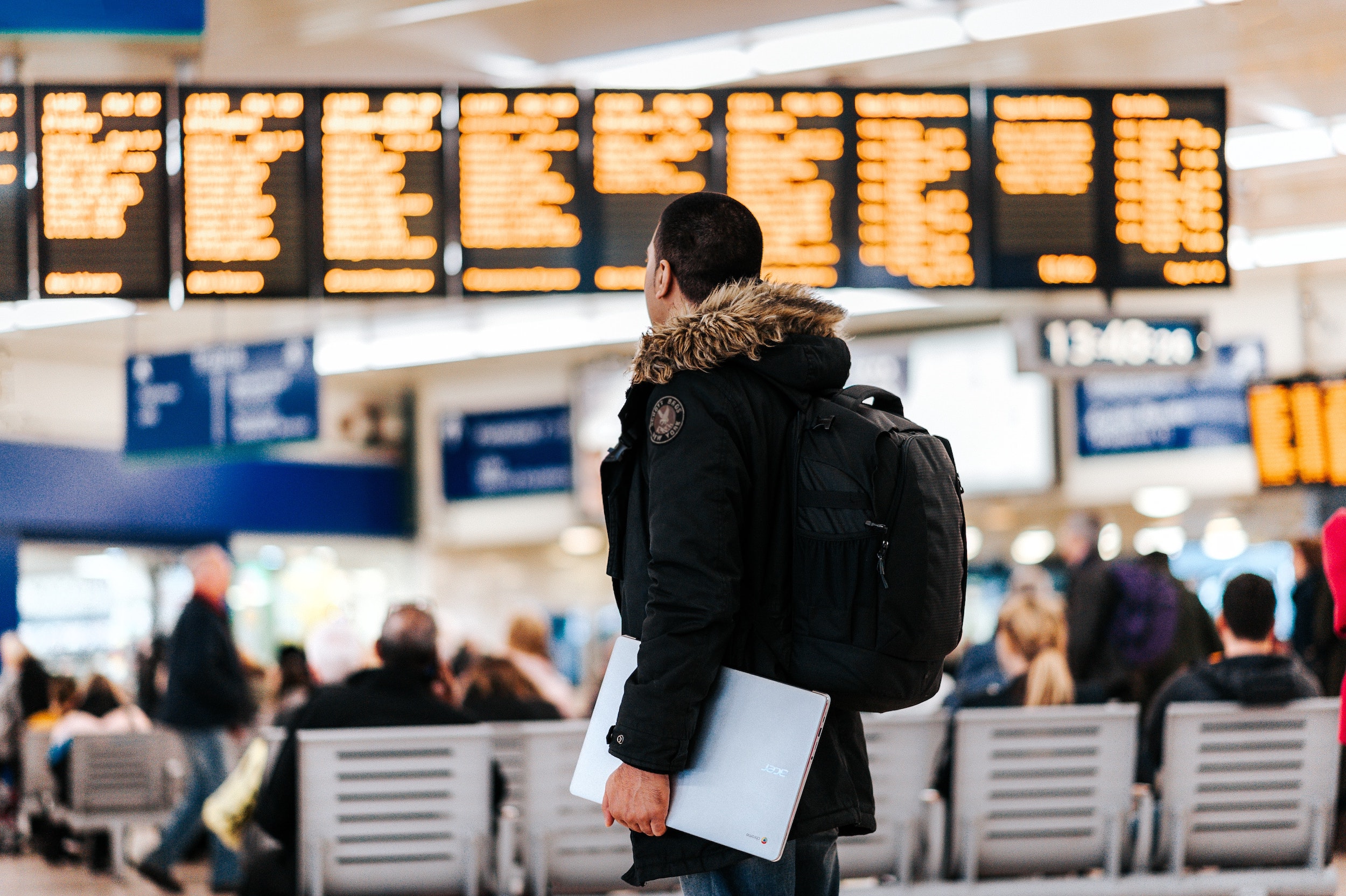The coronavirus is continuing to have a huge impact on the travel industry as a whole with hostels and hotels across the world being hit hard by increased cancellations, travel restrictions and lockdowns.
Our co-founder Rosie sat down with Lior, Founder and Head Hostel Coach at hostel.consulting, to answer some of the most common questions hostel and hotel owners have about continuing with business during the outbreak.
SHOULD WE DROP OUR RATES?
Lior: No, avoid entering a price war. It has been constantly proven that lowering rates will not create nonexistent demand. This is especially true in the case of the coronavirus epidemic. Those who are concerned with the situation and do not wish to travel will not be basing their decision on price. Do not fall into the trap of lowering prices to try and get a bigger piece of the market share pie. Your competition will follow and it will only be a war where all who are involved lose. You will all get more or less the same reservations you would have had anyway only you will have sold at a lower rate. If your competitors start lowering prices, try to band together to reverse their decision before you follow them down that dark path.
Rosie: Rather than dropping your rates, instead try to create and promote added-value offers to incentivise direct bookings. This is something we always recommend our clients offer on top of the usual % off. Look at what extras you can offer in-house for those who book direct – from a free drink on arrival to late check-out and even a free tour or activity. Having a direct booking package like this could give you the edge on your competitors without lowering your prices.
DO WE STOP MARKETING DURING THIS PERIOD?
Rosie: No – it is important for you to continue your brand’s marketing efforts. In fact, it’s more important than ever to communicate with potential and upcoming guests which is what marketing is at its core. This difficult period is not because people do not want to travel – it is because they can’t or feel too afraid to. Therefore, their interest and intentions for booking in the future remain the same.
SO WHERE SHOULD WE FOCUS OUR MARKETING EFFORTS?
Rosie: You don’t need to overhaul your whole marketing strategy, but you can shift the focus of your content to target domestic markets. Many people don’t want to fly or travel far right now, but search data suggests they might still want to take a break closer to home with Google reporting a 50% increase in searches for ‘staycations’. Creating content and tailoring your messaging to fit this theme is key. You could even develop a ‘staycation’ package to market during this time which – similar to the direct booking offer we mentioned earlier – could include perks for domestic travellers including F&B vouchers, late checkout and a free local tour or in-house activity.
Lior: People are travelling much less internationally but there are many that are still doing so locally with people looking to vacation in their own countries. Most destinations have travellers already in them who are unsure about the situation yet are not running back home. These potential guests should also be reached out to and catered for.
SHOULD I ALTER MY BOOKING POLICY? WHAT ABOUT REFUNDS?
Lior: During these uncertain times pre-paid Non-Refundable rates and Early Booker Specials are most likely not going to have much success as people are not as willing to commit to their plans. They want to be confident in your flexibility and understanding of the situation. Focus on super flexible policies and take a date-change approach for new bookings (bringing you new reservations for the future).
As for previously made bookings with Non-Refundable rates your decision to refund them will most likely depend on the reason for their cancellation if they are affected by a “force majeure” circumstance clause and other factors. We recommend as much as possible to offer a credit for the full amount paid for a future stay when possible. Direct the booker to their travel insurance company for compensation if they feel they qualify for it. However, depending on where they reserved and your contract with third parties, you may be forced to give a full refund so you must inform yourself of the legalities and your partnership contracts beforehand.
HOW DO WE PUT OUR GUESTS MINDS AT EASE?
Rosie: The best thing to do in these types of circumstances is be honest and personable with your guests. From a marketing perspective, while we don’t think it is necessary to post constantly about the coronavirus on your social media channels, we do recommend sharing a statement outlining the efforts your hostel or hotel is taking to ensure you are being as safe, hygienic and responsible as possible. This can include the areas Lior mentioned in the last question.
Another way to reassure guests who have already booked is to update your pre-stay emails to include this information. We would advise keeping your FAQs updated to reflect your guests’ concerns and make sure they are easy to find on your website – you can also share this link on your social media channels. You could even add a pop-up to the homepage of your website with this information.
We have seen some brands go the route of sharing jokes and memes about the coronavirus. While we fully understand why people need some comic relief at this time, we would not recommend this approach. It could easily send the wrong message to your audience and make it seem like you are not taking the situation – and therefore their safety when they stay with you – seriously. You don’t want to risk a backlash against your brand.
And finally, keep your messaging factual – avoid dramatic language, sharing your personal opinion on the outbreak and being accidentally alarmist. Ultimately, guests want to know the facts and what you are doing to keep them safe.
SHOULD WE PAUSE OUR ADS?
Rosie: We wouldn’t recommend stopping your social media ads altogether, but it’s definitely worth making some changes to your ads strategy during this period. With the rise in searches for staycations as just mentioned, shift the focus of your ads to target domestic markets and alter your messaging to promote local travel. You can also target those already travelling in your region using Facebook’s targeting methods.
Our data shows that people are still booking travel – we opted to keep retargeting ads (that is, ads aimed at users who have visited your website and not yet booked) running for all clients and we are still seeing bookings coming through these channels.
You might also want to hold some budget back to spend more at a later date when the industry recovers and the demand for travel increases again.
WHAT STEPS CAN WE TAKE TO PREVENT THE SPREAD OF THE VIRUS WITHIN OUR HOTEL OR HOSTEL?
Lior: As an industry and as citizens of the world, we all have a civil responsibility to control this epidemic as much as possible. We must avoid not only our own infection but also transmitting it to others and thus spreading the virus any further. In a hostel where there are shared spaces, this can be more difficult but not impossible. Some steps you can take include:
- Implement procedures and protocols in the frequent and proper sanitization of your facilities.
- Accept contactless credit-card payments and limit or even eliminate cash transactions to reduce the risk of infection through cash manipulation. If you have a bar or other frequently used services or products you might want to consider temporarily using a tab system limiting transactions to a minimum.
- Have a thermometer in the property (which is properly sanitized between each use) and educate the staff on your countries protocols of reporting possible infections and have a room or area available for isolation of potentially infected guests.
You can find more in-depth advice on this area over on hostel.consulting’s latest blog post.
HOW DO WE PREPARE OUR STAFF?
Lior: Educate your staff on the correct hygiene behaviours which we should all be currently following (effective hand-washing, sneezing and coughing into your sleeve, avoiding contact with surfaces, avoiding close contact). Communicate with all your staff that this does not mean you are an unsafe place to be. Rather the opposite, you are aware of the situation, take it seriously and are dedicated to keeping everyone as safe as possible.
Rosie: If you have an in-house marketing team or staff who manage your social media, ensure that they remain active and are ready to answer any questions that come in via social media, email and over the phone. Create and distribute a coronavirus FAQs document to staff members to ensure that everyone is on the same page and sharing the most accurate, up-to-date information with guests.
WHAT COMES NEXT?
Rosie: When the outbreak ends, we will see borders reopen, flight paths resume and people travelling once again. In fact, it’s likely that when consumers do regain confidence, many will be jumping at the chance to book a trip after experiencing such restrictions. After the SARS epidemic ended, there was a surge in travel bookings including an 82% increase in flights bookings in just one month.
Be prepared for this bounce back by getting clear on what you have to offer people that is unique to other competitors and setting clear, measurable objectives. Chances are that travel lovers will be jumping at the chance to book a trip and with so many accommodation providers in a similar position to you, it is important that your brand’s marketing is on point.
Lior: This too shall pass. Although we can not predict with certainty when to expect a comeback, this industry has proven to be very resilient. Our guests are travel stubborn and when they return to normal travel habits you should be prepared to maximize revenue and even recover some of the losses you have or will experience from this situation. Take this time to focus on best practices in your marketing, sales strategies, and revenue management to fully potentialize the return in demand when it comes.




Very good job and thanks for sharing such a good blog.
Best regards,
Thompson Cannon